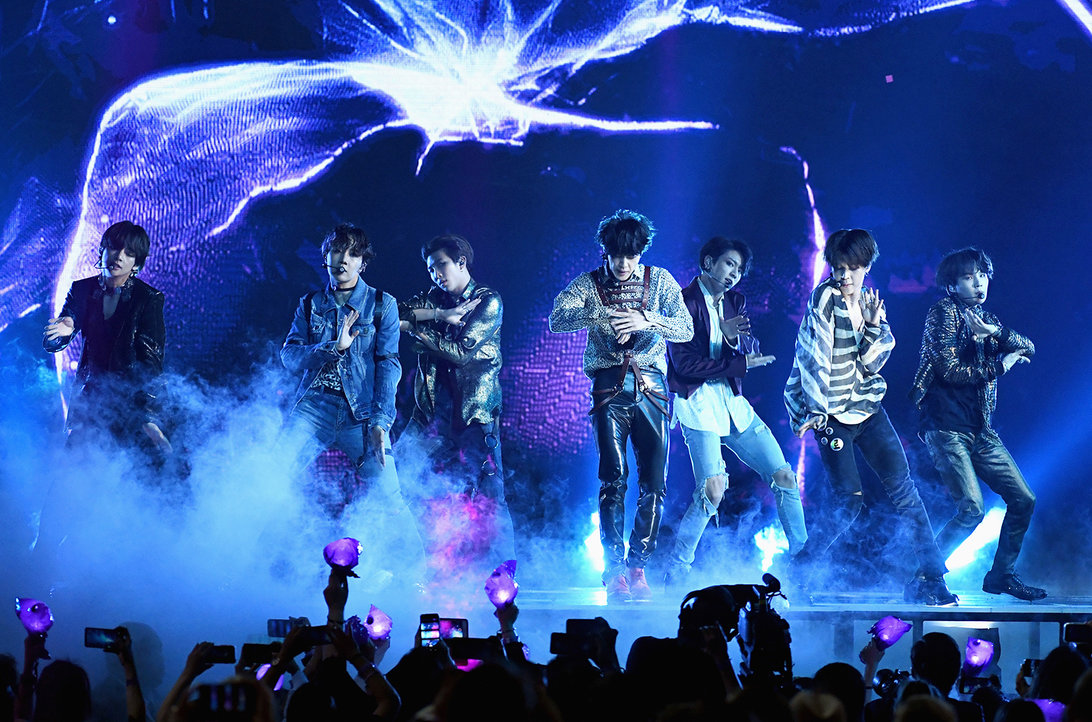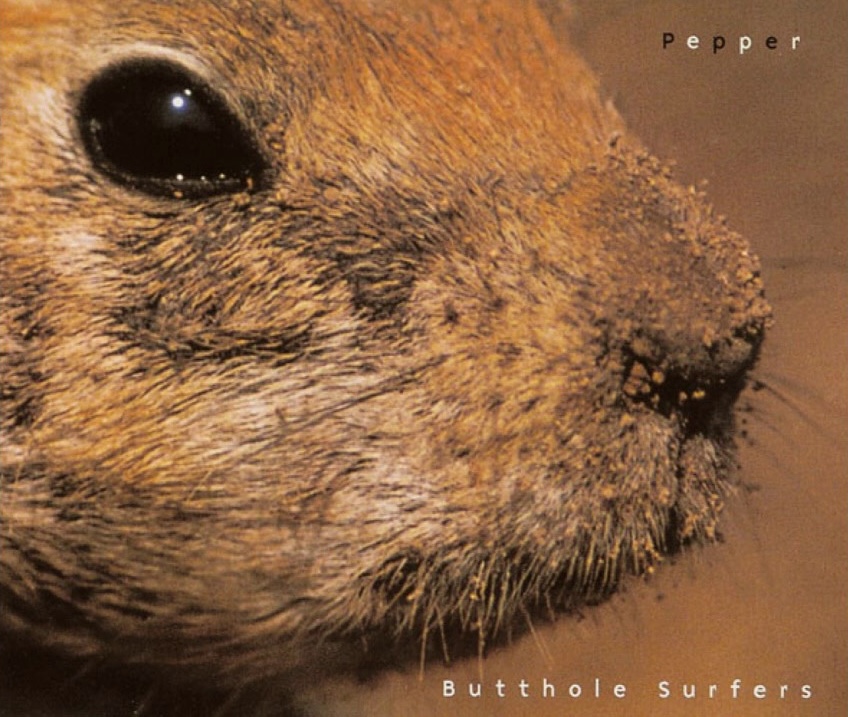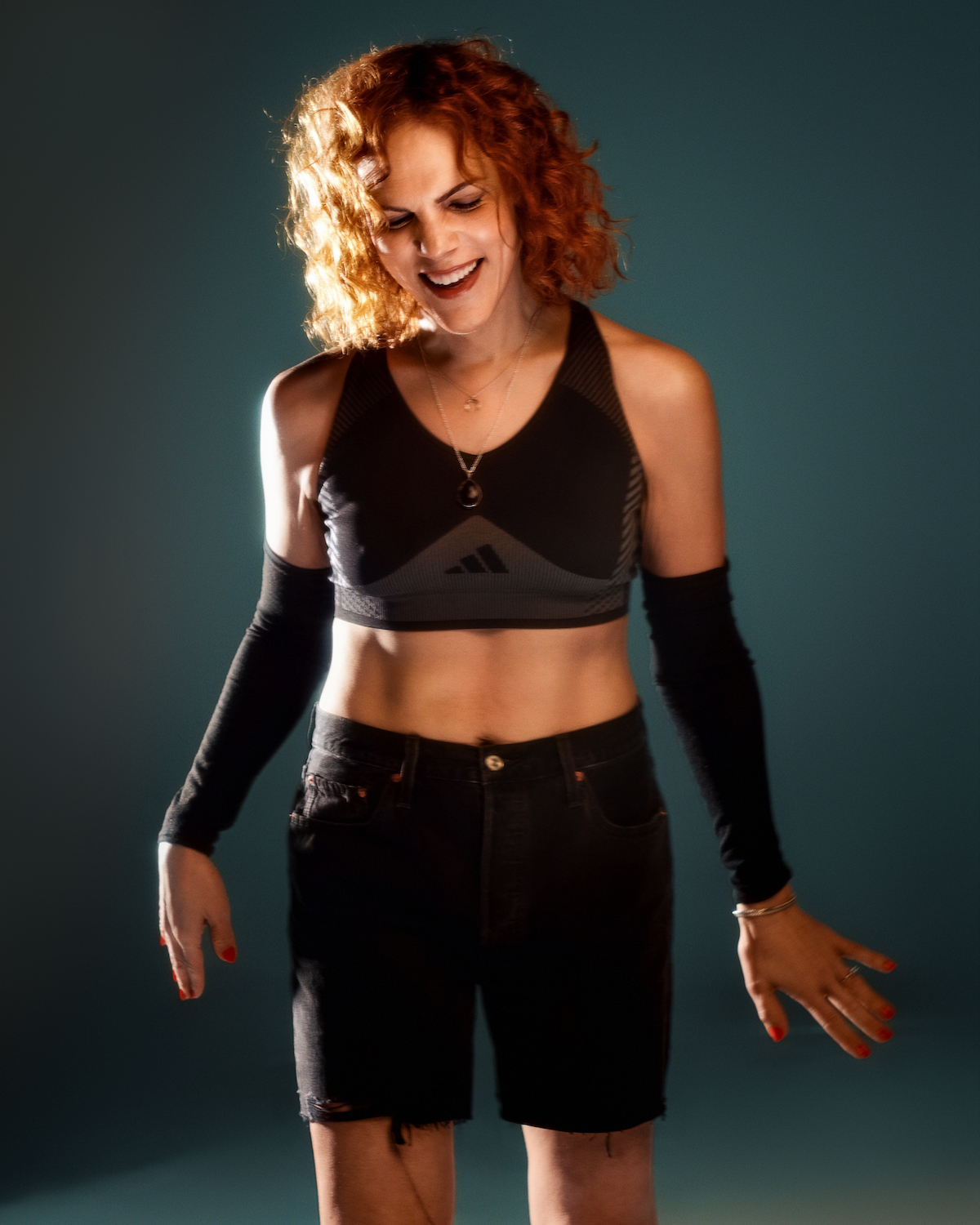Quick: Who's the biggest pop star in the world? Taylor Swift? Drake? Beyoncé? Justin Bieber? Rihanna? Ed Sheeran? These are all viable candidates, but if your list only reaches to the end of the English language, it's far too limited.
Pop music as we know it is only possible because of mass media, and thanks to mass media it has been a global phenomenon for basically its entire history. Around the world, culturally and geographically delineated music scenes proliferate, some of them at the highest levels of fame and fortune the music industry allows. Wherever English is not the dominant language -- even some places where English is the dominant language, including here in America -- vast infrastructures exist to support pop music sung in other tongues. As such, you can be a superstar without ever crossing over into the American mainstream.
The influence of these scenes is almost always felt in one way or another. Savvy American music-industry pros keep their ear to the ground, incorporating elements from foreign music into the steadily evolving sound of top-40 pop. Perhaps nobody is better known for this approach than Diplo, who, prior to his tenure as a hitmaker for the likes of Justin Bieber and Beyoncé, made his name promoting and/or exploiting a wide range of global pop sounds to English-speaking hipsters. But Diplo's hardly the only subculture vulture. As anyone who's heard elements of Afrobeats or grime or dancehall on a big-budget pop single lately can attest -- or, like, anyone who's heard Paul Simon's Graceland -- this phenomenon is widespread.
When superstars from outside the American mainstream cross over, they historically have done so by singing in English, like Latin pop stars Shakira, Ricky Martin, and Gloria Estefan. Some artists, like Swedish pop singer Robyn -- who scored some legit US hits in the '90s before rebranding as a postmillennial indie darling -- never even bother to record in their first language. The reasoning is obvious: The largest audience for pop music is English speakers. It's simple pragmatism, as Robyn once explained: "I think [singing in] a language that’s only spoken by 8 million people … I don’t know if that’s what you want to be doing."
Occasionally, a song in a different language does make its way past America's cultural gatekeepers. My colleague Tom Breihan's column The Number Ones, which tracks the history of chart-topping hits on Billboard's Hot 100 singles chart, recently flashed back to hits sung in Japanese, Italian, and partially in German from the early '60s. There have been several others since, from "99 Luftballoons" to "Macarena" to "Gangnam Style."
Until recently, these have tended to be novelty songs and/or one-hit wonder situations. But the mainstream lifespan for an artist singing in other languages seems to be getting longer. We may be entering an era in which artists can gain a foothold in the American mainstream without abandoning their native tongue. America's president may be fixated on putting up literal walls at our borders, but the boundaries of the pop mainstream are growing more porous all the time.
The best case study for that concept is J Balvin. The Colombian superstar just released Vibras, a stylish and impressive collection of reggaeton and Latin trap that arrives just in time to capitalize on the best visibility of his career. Last year Balvin scored a genuine Spanish-language smash in the US marketplace with the populist anthem "Mi Gente," a collaboration with the French DJ Willy William. The song is a relentless body-mover, its frenetic, squealing loop topped off by Balvin's casually swaggering Auto-Tuned sing-rapping. Translating to "My People," it struck a nerve in a country where the government has taken a hostile stance toward immigrants and people of color, rising to #19 on Billboard's Hot 100. Beyoncé eventually hopped on a remix that doubled as a benefit for Puerto Rico hurricane relief, rocketing "Mi Gente" all the way to #3, but it was a certified hit even before she got involved.
Luis Fonsi and Daddy Yankee's Bieber-assisted "Despacito" is the song that proved a Spanish-language pop hit could go supernova in the States, but "Mi Gente" is proving to be the introduction to an enduring superstar. Rather than disappearing back into the arms of his loyal fan base according to script, Balvin is continuing to reach a wider audience.He hit the top 10 again recently thanks to "I Like It," a Song Of The Summer contender from Cardi B's Invasion Of Privacy. Built around a sample from Pete Rodriguez's boogaloo classic "I Like It Like That," it's one of the most contagiously fun pop-rap singles in recent memory, its streaks of playful melody bolstered by a beat capable of dislodging the foundation of your local dance club. Once again, Balvin sings his part in Spanish save for the line, "Paparazzi, like I'm Lady Gaga." His Puerto Rican peer Bad Bunny mostly sticks to Spanish, too. It didn't deter listeners; the song debuted at #8 and currently resides at #19. With an official video out this week, expect it to be back in the top 10 soon.
Meanwhile, Balvin's Nicky Jam collaboration "X" recently rose to #41 -- not bad for a song with no assist from a mainstream A-lister -- and is approaching a billion views on YouTube, a feat already achieved late last year by "Ahora Dice," the Chris Jeday-led posse cut also featuring Balvin. "Ahora Dice" racked up all those views without cracking the Hot 100, suggesting most of its audience was outside the US, but a single that hasn't actually charted can still expand an artist's imprint. For instance, Balvin duets with Liam Payne on "Familiar." It's not on the Hot 100 either -- yet -- but his mere presence alongside a One Direction alum, not changing up his aesthetic in the slightest, only serves to solidify his position.
If Balvin is not yet at a Beyoncé or Cardi exposure level, he's also not going away quietly. And in Vibras, he has an album ripe with candidates to extend his success in the American mainstream. You'll notice that all of Balvin's greatest triumphs thus far have involved other artists, and the posse cuts here in particular feel like winners: "Machika," a jagged party-starter with Jeon and Anitta; "Peligrosa," an airy hip-swinger with Wisin and Yandel; and "No Es Justo," a Zion and Lennox collab that lives in the "Despacito" zone. But Vibras includes plenty of solo tracks worthy of heavy rotation, from the sweltering bop "Ambiente" to the simmering ballad "En Mí" to the liquid yet percussive "Cuando Tú Quieras." I will be very curious to see where the album debuts next week -- even more so to see whether his world-domination campaign produces any more American top-10 hits.
Speaking of such chart feats, Korean boy band BTS just became the first K-pop act to hit #1 on the Billboard 200 albums chart (with Love Yourself 轉 'Tear') and the first to reach the top 10 of the Hot 100 singles chart (with Tear track "Fake Love" -- not a Drake cover). Less a band than a social media empire with a soundtrack, the crew also known as Bangtan Boys have been greeted as royalty on these shores, inspiring a shrieking, fainting enthusiasm not unlike Beatlemania. And like the Beatles, they've got more than boyish good looks and a marketing plan. They've got tunes.
In Tear, BTS have served up another immaculate collection of genre-defiant pop confections. In its first three tracks, the album hops from slow-burn R&B to shamelessly centrist pop-rap to a futuristic piano ballad featuring Steve Aoki. From there they try out jazzy hip-hop, post-dubstep pop, Latin trap, EDM jock jams, and something I can only describe as the boy band version of SoundCloud rap. Much of it is ridiculous, but most of it works. Although individual tracks often register as straightforward pop productions, the sheer variety of it all is audacious. Taken as a whole, Tear is essential listening for anyone seeking adventurous modern pop music.
A lot of people are finding it. The American media blitz that greeted the group's Love Yourself 承 'Her' last fall is back in full force lately, with returns to Ellen and the Billboard Music Awards both generating a deafening excitement on set. That passion translated to 100,000 in first-week sales and 35,000 more units via streaming and track sales. Although "Fake Love" is mostly powered by streaming and track sales, it's also apparently worming its way into American radio rotation -- still the surest measure of mainstream popularity in this country. And if "Fake Love" doesn't accomplish full top-40 saturation, as with Balvin's Vibras, the BTS album has abundant ammunition with which to keep plugging away at programmers.
Notably, the lyrics on Love Yourself 轉 'Tear' are split between Korean and English. The songs tend to pingpong between the two languages with an uptempo verve that mirrors the music, ultimately functioning as a Trojan horse for linguistic diversity. Admittedly, it's hard to seriously argue that a song with a chorus like "FAKE LOVE! FAKE LOVE! FAKE LOVE! FAKE LOVE!" is paving the way for other languages in the American mainstream. But given what we're seeing with Balvin, it may not be too long before BTS can rule the airwaves in their native tongue.

CHART WATCH
As mentioned above, it’s a huge chart week for Korean boy band BTS, who have become the first K-pop act to top the Billboard 200 and the first to land a single in the Hot 100 top 10.
First, the album: Love Yourself 轉 'Tear’ put up 135,000 equivalent album units and 100,000 in pure sales to debut at #1. Per Billboard, it’s also the best sales week ever for a K-pop album, the first primarily foreign language album to top the chart since Il Divo’s Ancora in 2006, and the first World Music album (as classified by Billboard) to go #1.
At #2 is Post Malone, followed by the debut of Lil Baby’s Harder Than Ever at #3. His first top-10 album is powered by 71,000 units, a whopping 65,000 of them from streaming. Most of those can be attributed to his Drake collaboration “Yes Indeed,” which also becomes Baby’s first top-10 single. Five Finger Death Punch enter at #4 with 71,000 units/60,000 sales for And Justice For None. After Cardi B, The Greatest Showman, and J. Cole comes the #8 debut of NAV’s Reckless on 36,000 units but less than 4,000 in actual sales. Black Panther and Playboi Carti round out the top 10.
Over on the Hot 100, Drake's "Nice For What" retakes #1 for a fifth nonconsecutive week, with two-week leader "This Is America" by Childish Gambino falling to #2. Drake's "God's Plan" remains at #3, with "Psycho" (by Post Malone and Ty Dolla $ign) and "The Middle" (by Zedd, Maren Morris, and Grey) at #4 and #5 respectively. Lil Baby and Drake's aforementioned "Yes Indeed" shoots from #49 to #6 in its first full week of tracking; according to Billboard, it's Drake's 26th top-10 hit, passing Elvis Presley for ninth best all-time.
After Bebe Rexha and Florida Georgia Line's "Meant To Be" at #7 comes British R&B singer Ella Mai's "Boo'd Up" at a new #8 peak, good for her first top-10 hit. Ariana Grande's "No Tears Left To Cry" is at #9, and BTS are in at #10 with "Fake Love" -- which, as we've established, is their first American top-10 hit and the first K-pop single to crack the top 10.
POP FIVE
Maroon 5 - "Girls Like You" (Feat. Cardi B)
Drake already did the parade of famous women gimmick, seemingly everyone has already landed a Cardi B guest verse, and the plaintive balladry here feels uninspired even by this band's standards. But by now I've been through enough Maroon 5 singles to realize resistance is futile.
https://youtube.com/watch?v=aJOTlE1K90k
Charli XCX - "5 In The Morning"
Our beloved commenters are correct that this sounds like Post Malone, which is part of its charm.
https://youtube.com/watch?v=h-l-rcS0Awc
Keith Urban - "Coming Home" (Feat. Julia Michaels)
This 808s-and-heartland exercise seems geared to straddle pop and country radio á la Bebe Rexha and Florida Georgia Line's "Meant To Be." The songwriting is fairly pedestrian, but the production is genius. And wow, what a difference it makes when Michaels' voice enters the frame.
https://youtube.com/watch?v=iC7wWFQUUqU
RL Grime - "I Wanna Know" (Feat. Daya)
Look at RL Grime edging into the post-EDM pop hitmaker market! "I Wanna Know" is a better crossover move than I would have expected from a veteran of the trap-rave scene. Is it better than Daya's last EDM-pop excursion, the Chainsmokers' "Don't Let Me Down"? Probably not, but the fact that I even have to consider it is pretty impressive.
https://youtube.com/watch?v=LwiOGuKEgkY
The 1975 - "Give Yourself A Try"
I have defended this band more passionately than most, but good lord this is bad.
NEWS IN BRIEF
- Hailee Steinfeld is starring as Emily Dickinson(?!) in a new sitcom pilot for Apple. [Deadline]
- G-Eazy surprise released 3 tracks on his birthday. [Rolling Stone]
- The Weeknd is launching Hxouse, a creative incubator for artists in Toronto. [Noisey]
- Lady Gaga appears to be back in the studio with Tony Bennett. [Billboard]
- Maroon 5's Adam Levine did a Carpool Karaoke. [YouTube]
- Justin Timberlake visited a Texas hospital to meet a survivor of the Santa Fe High School shooting. [Facebook]
- DJ Snake says a new album is on the way. [Twitter]
- Halsey was treated for an asthma attack at the BottleRock festival. [Billboard]
- Little Big Town released a video for "Rocket Man," their contribution to the new Elton John tribute albums. [YouTube]
- Bebe Rexha shared the tracklist for her debut LP Expectations out 6/22. [Instagram]
- Clean Bandit released a video for their Demi Lovato collab "Solo." [YouTube]
- Kesha released a video for "Hymn." [YouTube]
- Troye Sivan announced the Bloom tracklist, which includes an Ariana Grande feature on "Dance To This." [Twitter]
- J. Cole and Lil Pump interviewed each other, apparently calling a truce. [YouTube]
HOLD ON, WE'RE GOING HOME
RIP TOM WOLFE. You were so fucking hot. pic.twitter.com/79WRzTM1QU
— Sean O’Connor (@seanoconnz) May 30, 2018






